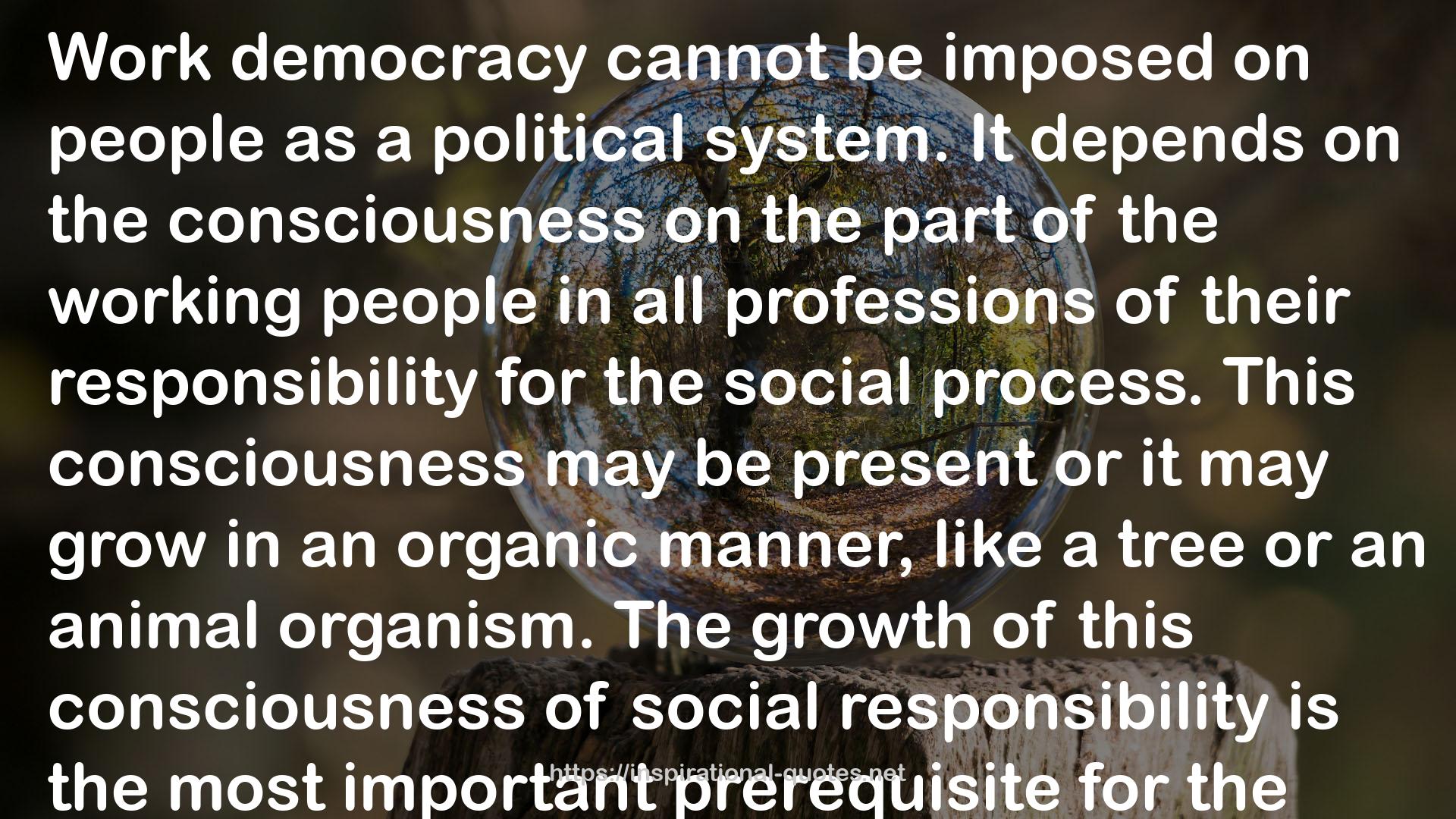The Mass Psychology of Fascism QUOTES
18
" Sentences like the following are found in many mystical and reactionary writings though not as clearly formulated as by Hutten:
''Kulturbolschewismus is nothing new. It is based on a striving which humanity has had since its earliest days: the longing for happiness. It is the eternal nostalgia for paradise on earth . . . The religion of faith is replaced by the religion of pleasure.''
We, on the other hand, ask: Why not happiness on earth? Why should not pleasure be the content of life? If one were to put this question to a general vote, no reactionary ideology could stand up.
The reactionary also recognizes, though in a mystical manner, the connection between mysticism and compulsive marriage and family:
''Because of this responsibility (for the possible consequences of pleasure), society has created the institution of marriage which, as a lifelong union, provides the protective frame for the sexual relationship.''
Right after this, we find the whole register of "cultural values" which, in the framework of reactionary ideology, fit together like the parts of a machine:
''Marriage as a tie, the family as a duty, the fatherland as value of its own, morality as authority, religion as obligation from eternity.''
It would be impossible better to describe the rigidity of human plasma! "

